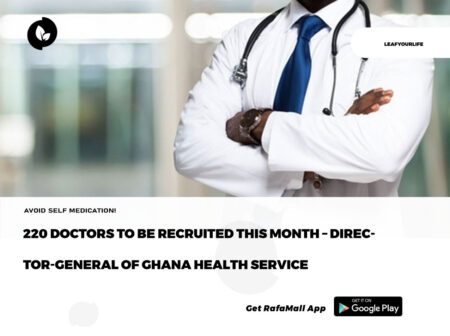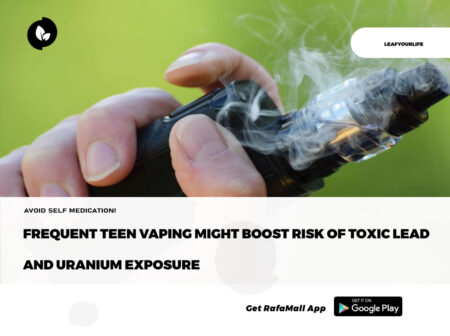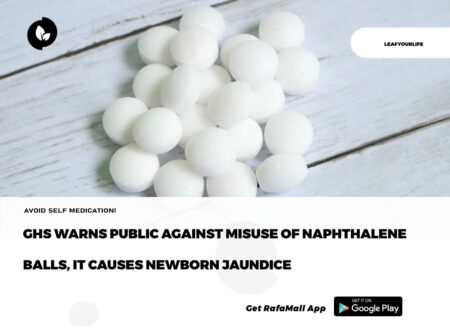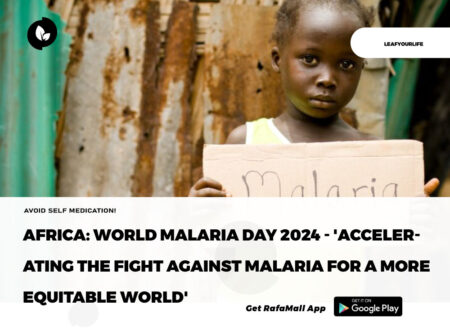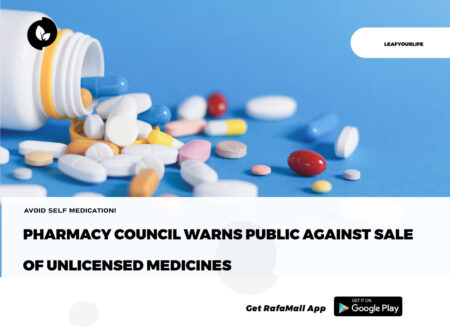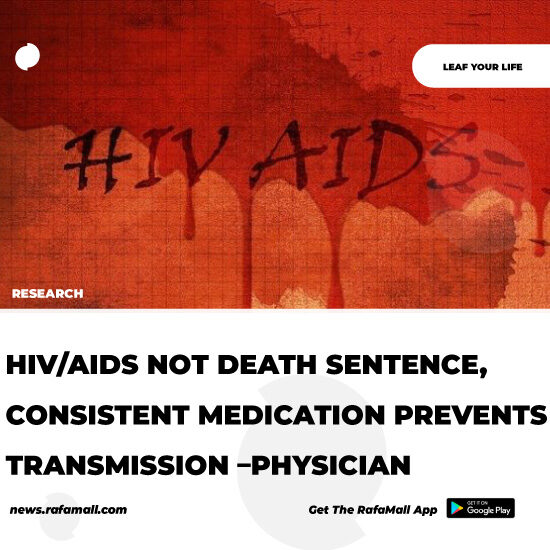
A Nigerian-trained United States-based medical practitioner, Dr Mazpa Ejikem, speaks to GODFREY GEORGE about the prevalence of HIV/AIDS among sexually-active Nigerians and the progress made so far in Nigeria to reach ‘Goal Zero’
Is there a difference between HIV and AIDS?
I often find that people do not know the difference between HIV and AIDS, and I’d say here that AIDS, which stands for ‘Acquired Immunodeficiency Syndrome’, is a term for the most severe form of HIV – Human Immuno Virus – infection. It is often characterised by opportunistic infections or cancers and was very common before ARTs became available. These days, with more and more access to treatment, many of those persons with HIV and AIDS do not progress to the very fatal AIDS.
The first two HIV/AIDS cases in Nigeria were diagnosed in 1985 and reported a year later. What is your assessment of the progress made as regards the eradication of the disease in Nigeria?
I believe we have come a long way since the 1980s. Even as Nigeria has nearly 2 million people living with HIV – a staggering statistic that places us third in the world’s HIV burden – we have seen an overall improvement in the knowledge, awareness and preventive practices over the years. This is largely due to the efforts of the government and several corporate bodies that have devoted resources to the fight against HIV/AIDS. However, we still have a long way to go. Science tells us that poverty, stigma and inadequate health system pose important limitations to the fight against HIV/AIDS, and these are areas where we must focus on if we are to take a leap forward toward the eradication of HIV/AIDS in Nigeria.
From your assessment, how prevalent is HIV/AIDS in Nigeria in 2022?
The country fact sheets of the Joint United Nations Programme on HIV/AIDS report that there are between 1.8 million to 2.1 million people (including adults and children) living with HIV in Nigeria. This gives an estimated prevalence of about 1.4 per cent. This, in relative terms, is small; but if you consider that Nigeria has a robust population of over 200 million people, the absolute numbers are crazy!
Is there a surge in cases?
Compared to the current prevalence of about 1.4 per cent, Nigeria had an HIV prevalence of up to 2.8 per cent a few years ago, and it is only reasonable that with all the efforts put into the fight against HIV, we should be getting some positive results. However, there is a mixed HIV epidemic status in Nigeria, with a high/increasing prevalence among key populations and a low prevalence in the general population.
Do you think the Nigerian government is doing enough to fight HIV/AIDS?
I honestly think that efforts are being made by the Nigerian government. I know the government has made and fulfilled a commitment to treating more and more Nigerians with HIV. We have seen an overall improvement in the HIV statistics in Nigeria in the past decade due to concerted efforts of the government and a host of corporate bodies/non-governmental organisations. But there are goals, and we can’t say we are doing ‘enough’ as a people if our goals are yet to be met. We can do much more; and our goals can be met.
How can one avoid falling prey to the viral disease?
The most effective way to prevent HIV/AIDS is avoiding possibilities of exposure. This includes abstinence from sexual intercourse, not sharing sharps, etcetera. However, abstinence isn’t exactly very feasible for a lot of people, so it is also advised that individuals stay faithful to one partner. But of course, that is also very difficult; many people have more than one sexual partner at a time, so it is strongly advised that such individuals use condoms the right way, every time. These are the commoner methods of prevention; however, a lot of people do not know of some medications that can help prevent HIV called ‘pre-exposure prophylaxis (PrEP) and post-exposure prophylaxis (PEP). These medications are extremely effective in the prevention of HIV if used properly. However, I must add that these medications do not protect against other sexually-transmitted infections.
How does one know one has the disease?
By testing; that is the only way to know for sure if you have HIV. Testing is an important step to controlling the disease. People generally feel reluctant to get tested, but I’d like to say that taking the bold step to get tested is taking charge of your own health; it empowers you to make decisions for yourself concerning your health. And that is extremely important, especially because HIV is not a death sentence. If one tests positive, all they need do is take their medications, correctly and consistently, and they can get to levels where the virus is completely suppressed and they cannot even transmit the virus to other people.
Are their personal test kits for one to self-test?
I am aware of a HIV self-test that tests for antibodies to the virus either in the blood or in the oral fluid. This means that people can run the test at home. It has only recently been approved. It is also effective in improving diagnosis and acceptance of testing among individuals. But as far as I know, it is not widely available in Nigeria yet.
Use of condoms has been advocated for the prevention of HIV/AIDS. What do you say to people who say they only enjoy sexual intercourse ‘raw’?
If by ‘raw’ you mean unprotected sex, well, that is a very good question. Several people admit to having better stimulation with unprotected sex compared to using condoms. The advent of medicines that are very effective in reducing the transmission of HIV such as PrEP is revolutionary for such individuals. However, these medications do not protect against other forms of STIs.
What advice do you have for people who already have the virus?
There is a wide range of emotions people feel when they get a positive HIV test result. Some people liken it to the stages of grief; others just feel outright helpless, afraid and anxious. It is important for such individuals to understand that it is completely okay to feel whichever way they feel about their diagnosis. I would go on to advise that such individuals seek support, as well as expert help from health care professionals, counselors, and psychologists.
How possible is it for a positive spouse to be with a negative partner without sharing the virus?
It is very possible for a positive individual to be with a negative partner without transmitting the virus. This is possible if the HIV positive partner takes their anti-retroviral medications judiciously. Research has shown that within six months of treatment, majority of PLWHA have undetectable viral loads in their blood. This means that they there isn’t enough virus in their bodily fluids to transmit the disease to their partners. But one must take their medications consistently to achieve this level of viral suppression. For people whose partners are positive, there isn’t any cause for alarm. All you need to do ensure that your partner maintains an undetectable viral by regular medications, and you are very unlikely to contract the virus from them.
Does this also not affect mother-to-child transmission?
It does. During pregnancy, childbirth or breastfeeding, HIV can be transmitted from a mother to her child. However, women who have undetectable viral loads are unlikely to transmit the virus to their unborn children or to the infant during childbirth. And administering antiretroviral drugs to the baby after delivery further reduces the risk of transmission to very low levels. It is advised that women with HIV who are trying to conceive start and continue antiretroviral therapy before they become pregnant. Also, the woman’s obstetrician can help her make a choice of the best and safest method of delivery, and infant feeding.
How should parents who have HIV-positive children care for them?
First things first, we should have a positive attitude towards children who are HIV positive and do well not to stigmatise or discriminate against them. Like adults, children with HIV can live a long and fulfilling life if they get appropriate care. It is the role of the caregiver or parent to ensure that children take their medications, and this includes ARTs and other preventive medications that protect against infections. Also, parents should try to see that their children get the appropriate vaccines at every stage of their growth and development.
From your point of view, how accessible are the antiretroviral drugs in Nigeria?
Compared to some years ago, more and more people are getting access to HIV treatment or ARVs today. Statistics show that 90 per cent of PLWH have access to ART as of 2021. The Nigeria ART programme began in the early 2000s and access to ARTs has steadily increased since then. In 2010, only 24 per cent of PLWH had access to ART. Five years later, that percentage doubled. See how far we’ve come? But of course, we can do better. We should do better because access to ART doesn’t equate to adequate utilisation. In medical school, we’d learned of the UNAIDS 90-90-90 target where they’d hoped that 90 per cent of PLWH knew their status, 90 per cent of those who knew their HIV-positive status will access treatment, and 90 per cent of those on treatment will have suppressed viral loads. But in 2018 while two-thirds of PLWH knew their status and half of them were on treatment, only 42 per cent were virally suppressed. Also, I personally think the statistics on access to ART might be exaggerated.
There was a report that the cure for AIDS was found. How true is it?
There is no cure currently available for HIV. I am aware that only three people have reportedly been ‘cured’ of HIV in the history of mankind. The approaches to achieving this cure were rather complex, unrealistic and haven’t been easily repeated or duplicated. It mostly involved some form of stem cell or bone marrow transplant. So, I would not say a cure for HIV/AIDS has been found. However, these cases are sources of hope for scientists. And PLWH should know that with appropriate use of ARTs, HIV can be managed like all other chronic health conditions, and they can live well into old age.
Can AIDS be treated using herbs or trado-medicinal means?
I am currently unaware of any herbs or trado-medical approaches to the treatment of HIV/AIDS. And it is very common in Africa — eight out of 10 Africans use herbal remedies for illness. Every so often, people believe that some diseases are best tackled with traditional medicine or spiritual efforts, especially diseases with no ‘cure’, and HIV/AIDS hasn’t been left out. Of course, this is generally not advised because there is no scientific evidence to show the efficacy of herbs or alternative therapies in management of HIV/AIDS. Also, investing time and resources into those remedies would allow for unchecked progression of the disease and waste of limited financial resources. Furthermore, those herbs and traditional medicines may be directly harmful to the body or may interfere with ARTs for those who take both herbs and ARTs. Whatever the case, we always advise against the use of herbal remedies for HIV/AIDS or most other illnesses because they just lead to worse outcomes for the patients.
Are there nutritional expectations that PLWHA should adhere to?
Well, because of the impact of HIV on the immune system, food-borne diseases can be more serious in people with HIV compared with HIV-negative individuals. So, like the general population, we advise that PLWH eat a healthy diet and maintain a healthy weight. We also advise that they drink potable water and avoid food-borne diseases by not consuming things like raw eggs, raw or undercooked meat, poultry or seafood, and even unpasteurised dairy. Good nutrition supports the immune system and prevents food and water-borne diseases.
Source: https://punchng.com/

